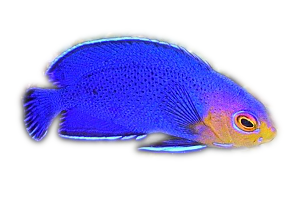
By Bob Goemans

Likely Reef Tank Suitable
Likely Fish-Only Tank Suitable
Range: Circumtropical distribution, yet those in the trade mainly come from the Tropical Atlantic Ocean: Gulf of Mexico, and Caribbean.
Natural Environment: Inhabits shallow, nutrient-rich rocky lagoons.
General Husbandry: Occasionally seen in the trade.
This brown to green Caribbean photosynthetic species is easy to maintain and does better at the bottom on the aquarium. Its large 2 inch (5 cm) polyps ringed with short tentacles require low to medium light and good water movement.
May close for several days and form a waxy film over itself, especially if placed in too bright locations, yet will dissipate and return to normal in the coming days. It's a self cleaning process, one which removes unwanted algae.
Can be occasionally fed with fortified live adult brine shrimp, baby brine shrimp or a very small amount of freeze dried plankton first soaked in some aquarium water.
Taxonomy:
Kingdom: Animalia
Phylum: Cnidaria
Class: Anthozoa
Subclass: Hexacorallia
Order: Zoantharia
Suborder: Brachycnemina
Family: Zoanthidae
Genus: Protopalythoa
FYI: As with all Palythoa/Protopalythoa species, they produce a toxin called palytoxin (Mebs, 1989) that is found in its mucus coating. It is used to protect itself from predators and also clear the path of other corals so as to make space for expanding its colony. Keep in mind that if this toxic mucus enters your eye, mouth, or an open wound, it can cause various disorders including numbness, hallucinations, or even death. Therefore, always wash your hands after handling these creatures, and never handle them if you have open wounds on your hands! Wearing gloves is a good idea when handling these animals!
For far more general information about these corals, see my article titled 'Zoanthids - A Wide Range to Choose From' in the 'Article" section of this website.
May actually be a member of the Palythoa genus.
There are 'white' forms, and those need several feedings per week with plankton-like foods to sustain.
Experience Level: Intermediate
Diet: Photosynthetic/Zooplankton feeder
Temperament: Semi-aggressive
Aquarium Environment: Reef or fish-only aquarium
Coral Safe:Yes
Fish Safe: Yes
Invertebrate Safe: Yes
Acclimation Time: 30 minutes+
Aquarium Hardiness: Moderate
Calcium (Ca): 380 - 430 mg/l
Alkalinity: 2.5 - 3.0 meq/l
Phosphate (PO4): <0.05 mg/l
Magnesium (Mg): approx. 1350 mg/l (relate to specific gravity)
Strontium (Sr) 8 - 10 mg/l
Temperature Range: 72 - 82°F (22 - 27°C)
Minimum Tank Size: 30 gallons
Lighting: PAR 350+
Water Movement: WM 2
Specific Gravity: 1.023 - 1.025
pH: 8.0 - 8.4
Iodine/Trace Elements Monitor/as necessary to maintain quality seawater.
.jpg)